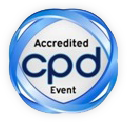
Olga S Koutsoni
Hellenic Pasteur Institute, Greece
Title: Assessment of potential adjuvanticity of recombinant Leishmania infantum
Biography
Biography: Olga S Koutsoni
Abstract
One important goal in a successful vaccine formulation is to identify adjuvants that promote the appropriate immune responses and are safe for use in humans. The majority of adjuvants elicit humoral responses instead of the desired strong cellular responses, while the most potent possess high toxicity. Consequently, the development of novel adjuvants remains an urgent need. The Leishmania eukaryotic initiation factor (LeIF) antigen is considered as a natural Th1-type adjuvant that has the ability to induce cytokine secretion by immune cells of healthy individuals. In this study, we evaluated the adjuvant properties of the recombinant Leishmania infantum eIF (rLieIF) by co-administering it along with OVA antigen in the peritoneal cavity of BALB/c mice. The positive control group received alum (a widely used adjuvant in humans) plus OVA. At 6 and 24 hours post-immunization, the peritoneal exudate cells (PEC) were harvested and the phenotype of recruited immune cells was determined. Moreover, we evaluated their capacity to produce NO upon in vitro stimulation with rLieIF and/or IFN-γ and/or LPS, as wells as their uric acid levels. Moreover, at 2 hours post-immunization, we identified the relative gene expression of the IL-1β that is associated in alum's mechanism of action. Mice that received OVA-rLieIF exhibited significant recruitment of neutrophils and monocytes in the peritoneal cavity at 24 hours post-immunization. Furthermore, PEC derived from OVA-rLieIF-immunized mice produced significant amounts of NO when stimulated with rLieIF or rLieIF-IFN-γ. Moreover, rLieIF induced a 50-fold augmentation of IL-1β gene expression, while it did not affect the levels of uric acid. In conclusion, this study brings additional knowledge on the adjuvant activity of LieIF that involves the IL-1β gene expression and suggests that LieIF may play a dual role in vaccination strategies.

